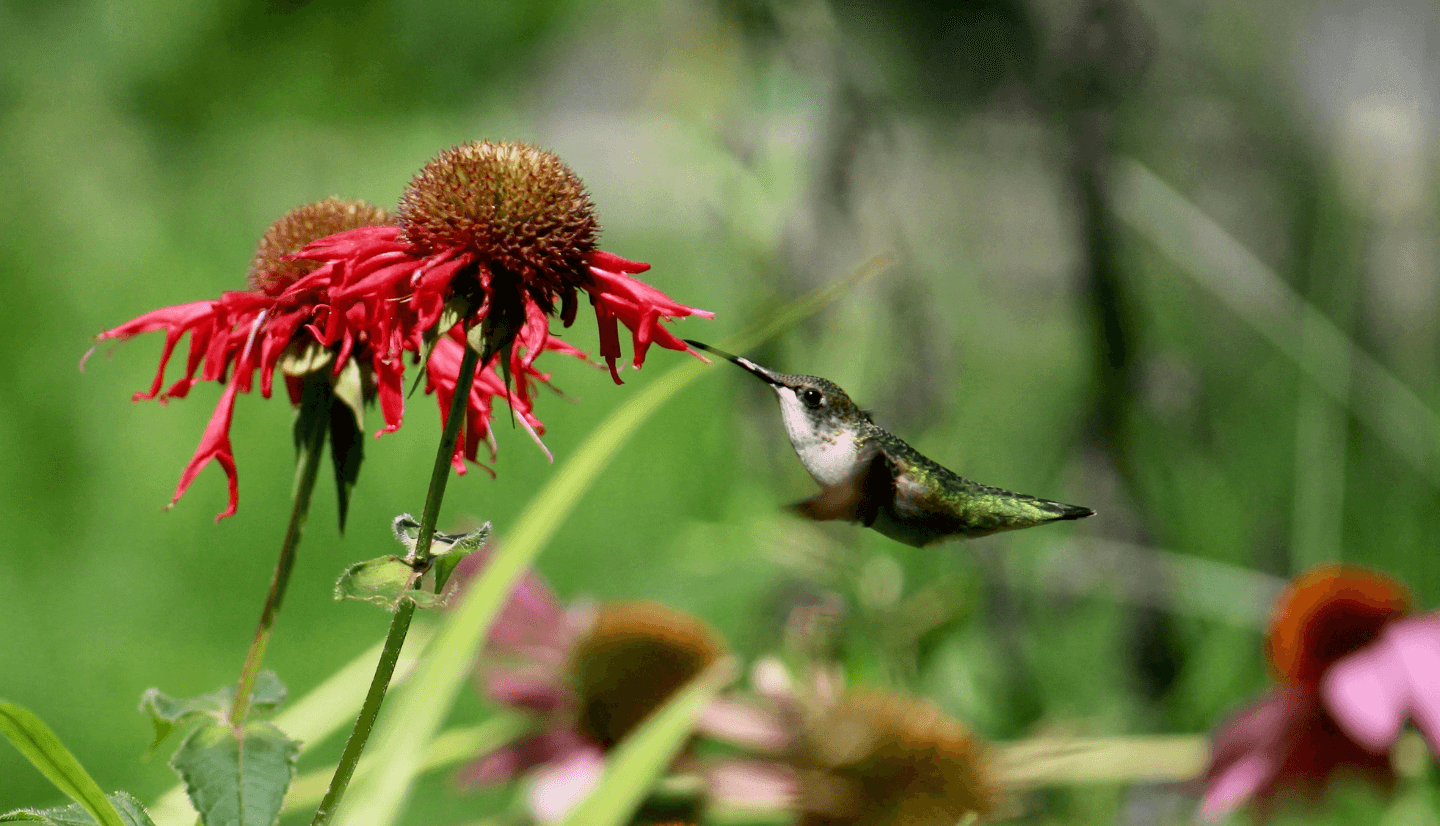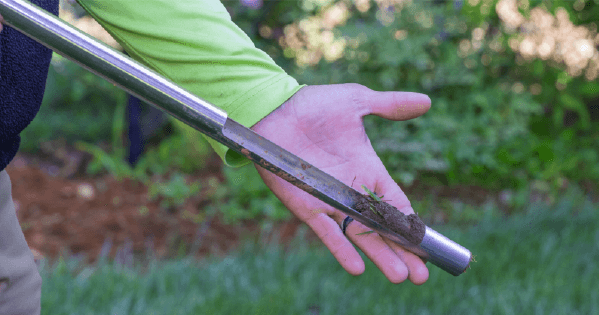Natural Pest Control: Balancing a Healthy Lawn Ecosystem

A healthy and balanced ecosystem results in various plants, insects, and animals living together in harmony without damaging the landscape. Incorporating native perennials is key to attracting good insects that prey on undesirable ones. Therefore, creating a natural method of pest control instead of applying chemicals.
Avoid Pests the Natural Way
Natural pest control methods encourage the presence of beneficial insects such as ladybugs, praying mantises, and some spiders which can help control the population of unwanted pests.
Georgia is rich in diversity of native perennials that are beautiful to look at while serving the greater purpose of attracting beneficial insects.
Here are some native plants to consider when aiming for natural pest control:
Milkweed – Milkweed is essential for the survival of monarch butterflies, but it also attracts beneficial insects like ladybugs and lacewings, which prey on aphids and other plant-destroying pests.
Goldenrod – This plant provides nectar for pollinators like bees and butterflies, but it also attracts predatory insects such as assassin bugs and spiders that feed on other insects.
Joe-Pye Weed – This tall, native perennial produces clusters of pink or purple flowers that attract butterflies and other pollinators. It also provides a habitat for predatory insects like mantises and predatory wasps.
Coneflower – Coneflowers are popular with pollinators and provide seeds for birds, but they also attract predatory insects such as hoverflies and parasitic wasps.
Bee Balm – Also known as wild bergamot, Bee Balm attracts bees, butterflies, and hummingbirds with its showy flowers. It also attracts predatory insects like hoverflies, which feed on aphids and other pests.
Tickseed – A low-maintenance perennial, Tickseed produces bright yellow or orange flowers that attract bees and butterflies. It also provides a natural habitat for predatory insects like ground beetles.
These native plants not only support pollinators but also create a healthy ecosystem by providing food and natural habitats for beneficial insect predators that help control pest populations naturally.
Don’t forget the birds!
Encouraging the presence of birds in your yard and garden is a great way to aid in the natural pest control route. Placing bird feeders, bird baths and native plantings that attract our flying friends can further protect your landscape from invading pests.
Birds feed on insects, seeds, and even small rodents, so keeping plants that attract them can keep pest populations at a low.
Grass Type Matters
Certain types of grasses are known to have natural pest-repellent properties, helping to keep insects at bay. Here are some of the best grasses to plant in your Georgia lawn to discourage insects:
Fescue Grass – Tall fescue grass is known for its pest-resistant qualities. It has a strong root system that can deter pests, and it’s also resistant to diseases. Additionally, it thrives in a variety of soil types and climates, making it a popular choice for lawns.
Buffalo Grass – Buffalo grass is a low-maintenance, drought-tolerant grass species native to North America. It has a dense growth habit and is resistant to pests and diseases, particularly when grown in sunny locations with well-drained soil.
Bermuda Grass – Bermuda grass is another popular warm-season grass that is known for its ability to resist pests and tolerate stress. It forms a dense turf that can crowd out weeds and is relatively resistant to pests such as chinchbugs and armyworms.
Perennial Ryegrass – Perennial ryegrass is often used in grass seed mixtures for lawns and sports fields due to its quick establishment and ability to withstand heavy foot traffic. It is also known for its resistance to pests like billbugs and sod webworms.
While these grasses may have some natural pest-repellent qualities, it’s important to note that no grass is entirely immune to pests. Proper lawn maintenance practices, such as regular mowing, watering, and fertilizing, along with integrated pest management techniques, can help keep pest populations under control and promote a healthy lawn.
Simply Green Can Help!
By implementing these practices, you can create a balanced ecosystem in your yard that promotes the health and well-being of plants, animals, and the environment. If you need to enlist the help of a lawn care professional who can help prepare your Georgia lawn for spring, contact Simply Green Lawn Care Plus today for a consultation.
About Simply Green Lawn Care

Simply Green aims to provide the highest quality lawn care, mosquito control, and lawn pest control services to Georgia residents.
We are locally owned and operated which allows us to be accessible, attentive, and responsive for customers in Georgia.
Our well-trained team is easy to work with and determined to exceed expectations.
All our plant health care specialists are Georgia Department of Agriculture Certified and maintain their Category 24 applicators license.


